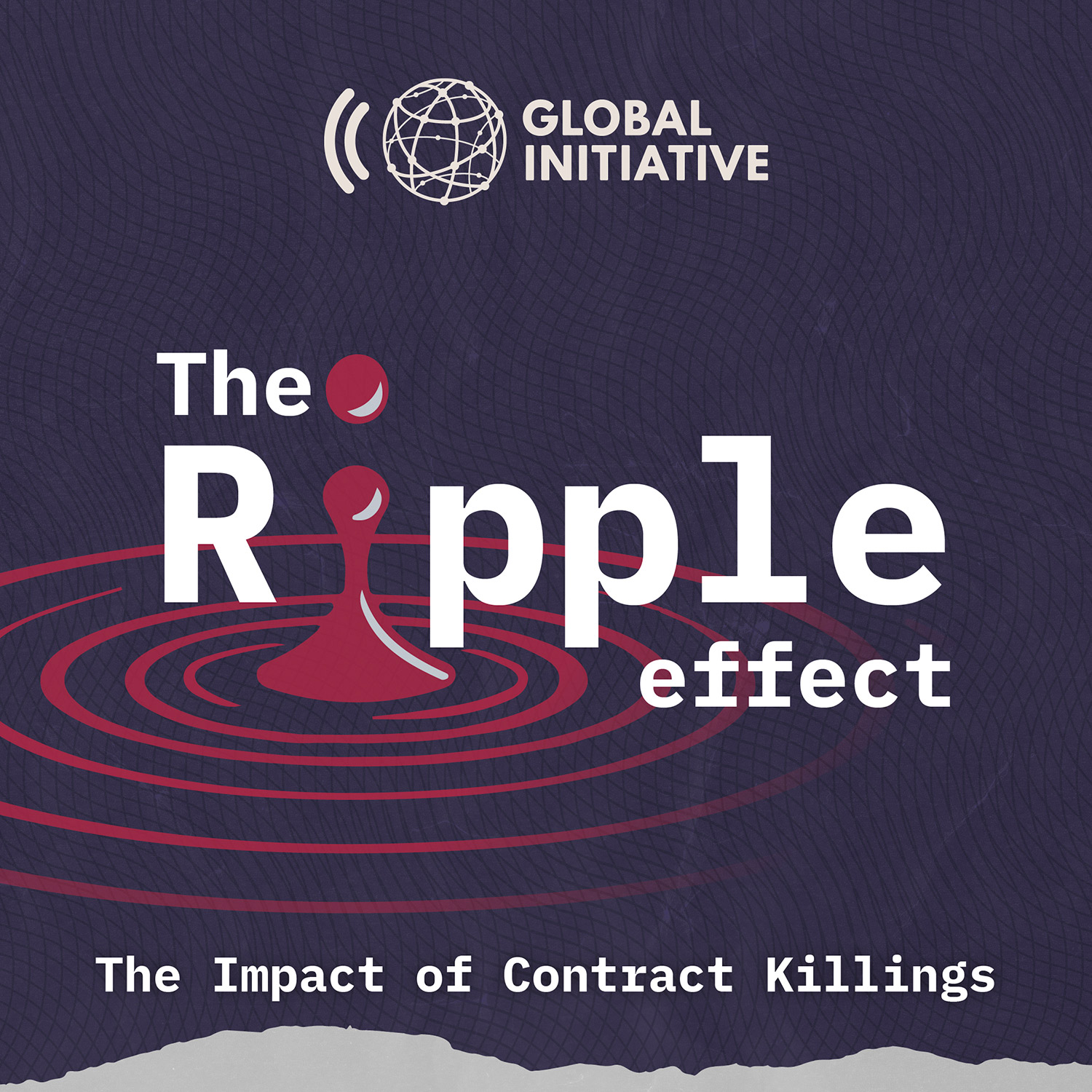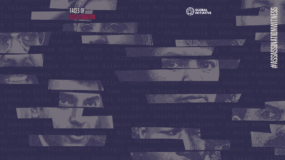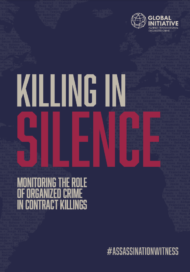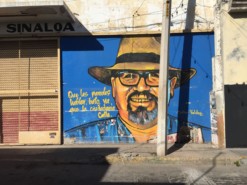Posted on 22 Aug 2022
In August 2022, journalist Fredid Román was shot dead in Chilpancingo, the capital of Mexico’s Guerrero state. Román was the owner and editor of the news outlet La Realidad en Guerrero, which reported on his state’s political landscape, where drug trafficking networks, vigilante groups and other criminal organizations often clash. Román became the 15th media worker to be killed in Mexico in 2022 alone, a number that had risen to 17 by the end of the year. The country is the most dangerous for reporters outside of a war zone, and calls for the protection of journalists and against widespread impunity abound.
But this does not only happen in Mexico – in other parts of the world, assassinations by organized criminal groups are a daily occurrence. To bear witness to the victims of organized crime, the Global Initiative Against Transnational Organized Crime (GI-TOC) launched The Ripple Effect, a podcast series that examines assassinations of civil society actors such as journalists, campaigners, politicians and environmentalists. The series looks at why such individuals are consistently targeted, who is responsible and who stands to gain. It also explores the current measures in place to prevent these murders and the landscape of impunity that too often allows the masterminds to walk free.
The first episode looks at the murder of journalists – an attack on one of the pillars of democracy, namely, freedom of expression – enabled by the nexus between crime and politics. In places where organized crime has infiltrated the political process, reporting on issues such as corruption or misconduct in public office becomes extremely dangerous. However, it is not only journalists who are victims of this collusion between politics and organized crime. The is also the case for politicians, as explored in later episodes in this series. Away from the public glare, systems of patronage and organized crime infiltration have enabled violence against politicians by criminals and political actors alike. This violence is mainly perpetrated by criminal groups and hitmen.
These criminal actors also target human rights defenders worldwide. As discussed in the third episode in the series, there is a concerning trend of hostility towards activists, which includes criminalizing human rights defenders. Ultimately, language matters, and when those with decision-making power show public hostility, it emboldens perpetrators, shapes public opinion and can even influence investigations.
Criminal groups target human rights defenders because their work seeks to disrupt illicit businesses. One particularly vulnerable group are those involved in protecting the environment, including indigenous peoples, who are often forced into defending natural resources and their way of life against industries such as illegal mining, illegal logging, large-scale agriculture and infrastructure projects. Rachel Cox, a campaigner and investigator from the NGO Global Witness, mentions that activists’ proximity to the natural resources they aim to protect makes them more likely to become targets of those who seek to exploit the landscape. A case in point is the assassination of Brazilian indigenous activist Bruno Pereira and British journalist Dom Phillips, who had been investigating the illegal fishing of endangered species in the Amazon region. Five people were arrested in connection with the murders, including the alleged leader of an illegal fishing mafia based in the region.
Understanding the nature of the problem is essential for providing solutions. Still, one overarching question runs through every episode of The Ripple Effect: What can be done to prevent the assassination of civil society actors? A number of approaches have been identified during the series to combat this growing problem, including more and improved coordination between governments, the private sector and civil society.
A focus on preventive measures, such as increasing funding, strengthening and adhering to existing mechanisms, and creating new tools, is also crucial. At the same time, tackling impunity is paramount. This could be achieved by adequately funding local police forces and prosecutors to enhance their investigative capacity, and creating a robust witness protection programme. It is important to identify the murders as assassinations from the beginning. As highlighted by human rights lawyer Roxanna Altholz, the investigation into the murder of environmentalist Berta Cáceres suffered a number of setbacks, as it was initially defined as a ‘crime of passion’.
Foreign actors and the private sector also play a prominent role, and specific actions from them are required, such as investing in training for civil society actors and in areas such as digital security and evidence collection. Foreign embassies on the ground could act as allies for defenders, especially in countries where state institutions are hostile. Corporations and financial institutions should work on strengthening requirements and continually monitoring their supply chains, partnering with the communities by promoting local and regional consultations, and establishing a policy of zero tolerance towards threats and attacks.
In one of the episodes in this series, environmental justice expert Liliana Jauregui explains how a group of women have started compiling data on murder threats based on images, voice notes and geo-referencing, which is then sent to international partners and organizations affiliated with the United Nations. This is an example of how civil society can be pivotal in pushing for accountability.
Assassinations, wherever they occur, generate a ripple effect that spreads far beyond that initial act of violence. In this podcast series, the GI-TOC and other organizations show that there are routes out of this cycle of violence and ways to end the impunity that seeps into every aspect of society, slowly eroding the very institutions people rely on. Now it is up to individual states to show that they care.

In the last episode, we look at the issue that underpins most contract killings: impunity. With impunity rates so high for the murder of journalists, environmentalists, and others, it can sometimes feel like a losing battle.
But convictions can be secured. Corruption that leads to assassinations can be exposed, and the masterminds put behind bars.
What changes are needed to disrupt the system of collusion that enables contract killings? And how can the international community step in?
HOST: Ana Paula Oliveira, GITOC
INTERVIEWEE(S):
Agnes Callamard, Secretary General of Amnesty International and former UN Special Rapporteur in Extrajudicial Killing
Steve Carmody, the head of investigation of the Wildlife Justice Commission
Judge Antonio Balsamo, Prosecutor General of the Italian Supreme Court of Cassation and Professor of Criminal law at the Faculty of Law of the LUMSA
Additional Links:

When a contract killing is committed it is up to the authorities to find out who is responsible. Not only the person who pulled the trigger, but also the person who ordered the assassination. How do law enforcement investigate this? From crime scene to the ultimate mastermind behind the attack.
HOST: Ana Paula Oliveira, GITOC
INTERVIEWEE(S):
Agnes Callamard, Secretary General of Amnesty International and former UN Special Rapporteur in Extrajudicial Killing
Steve Carmody, the head of investigation of the Wildlife Justice Commission
Additional Links:

In this episode Ana explores how we respond to the assassination of politicians, and what needs to change to make sure that politicians cannot be murdered with impunity.
HOST: Ana Paula Oliveira, GITOC
INTERVIEWEE(S):
Romain Le-Cour Grandmaison, Senior Expert, Global Initiative Against Transnational Organized Crime.
Gemma Dipoppa, Assistant Professor of Political Science at Brown University, United States.
Antônio Sampaio, Senior Analyst, Global Initiative Against Transnational Organized Crime.
Additional Links:

When most politicians are elected to office, public criticism is the worst they will face. But for some politicians, they become targets for assassination. In this episode of The Ripple Effect, Ana explores why this is the case, why politicians are at risk of assassination and the role of organized crime.
HOST: Ana Paula Oliveira, GITOC
INTERVIEWEE(S):
Romain Le-Cour Grandmaison, Senior Expert, Global Initiative Against Transnational Organized Crime.
Gemma Dipoppa, Assistant Professor of Political Science at Brown University, United States.
Antônio Sampaio, Senior Analyst, Global Initiative Against Transnational Organized Crime.
Additional Links:

In this episode of The Ripple Effect, Ana looks at the practical steps that can be taken to protect environmentalists from the many threats they face. She also explores alternative approaches governments and corporations can take to make sure environmentalists and indigenous voices are heard.
HOST: Ana Paula Oliveira, GITOC
INTERVIEWEE(S):
Maiara Folly, Co-founder and Programme Director at Plataforma CIPÓ - Twitter
Billy Kyte, Independent Consultant on Conflict Mitigation and Peace Building, and member of the GI network of experts - Twitter
Rachel Cox, Senior Campaigner and Investigations at Global Witness - Twitter
Additional Links:

In this episode, we guide you through the struggles environmentalists face. These people are on the frontline of the climate crisis, yet they face imminent threats from other powerful forces. Who stands to gain from the attacks on environmentalists?
HOST: Ana Paula Oliveira, GITOC
INTERVIEWEE(S):
Judy Pasimio, Coordinator for LILAK (Purple Action for Indigenous Women’s Rights).
Liliana Jauregui, Senior Expert Environmental Justice from IUCN.
Rachel Cox, Campaigner and Investigations at Global Witness.
Additional Links:

Welcome to The Ripple Effect from the Global Initiative Against Transnational Organized Crime.
Following on from the last episodes, we look at how we can protect human rights defenders against violence.
HOST: Ana Paula Oliveira, GITOC
INTERVIEWEE(S):
Roxanna Althoz, Human Rights Lawyer, who was part of the international investigation into the murder of the indigenous environmentalist campaigner, Berta Cáceres in Honduras in 2016.
Michelle Foley, HRD Memorial Project Coordinator, Frontline Defenders
Juan Pappier, Senior Researcher for Americas at Human Rights Watch
Maureen Meyer, Vice President for Programs at the Washington Office on Latin America.
Additional Links:
Global Initiative Against Transnational Organized Crime
Bloomberg - Did the Avocado Cartels kill Mexico 'Butterfly King'?

Welcome to The Ripple Effect from the Global Initiative Against Transnational Organized Crime.
In this episode we look at the threat against human rights defenders. What makes these brave individuals a target for assassination?
HOST: Ana Paula Oliveira, GITOC
INTERVIEWEE(S):
Michelle Foley, HRD Memorial Project Coordinator, Frontline Defenders
Juan Pappier, Senior Researcher for Americas at Human Rights Watch
Maureen Meyer, Vice President for Programs at the Washington Office on Latin America.
Additional Links:
Global Initiative Against Transnational Organized Crime
Bloomberg - Did the Avocado Cartels kill Mexico 'Butterfly King'?

Welcome to The Ripple Effect from the Global Initiative Against Transnational Organized Crime.
In this episode we look at how civil society can mobilize itself to fight against impunity, and reduce harm to journalists and other civil society actors.
HOST: Ana Paula Oliveira, GITOC
INTERVIEWEE(S):
Andrew Caruana Galizia – co-founder of the Daphne Caruana Galizia Foundation and son of journalist, Daphne Caruana Galizia
Guilherme Canela Godoi – who is currently heading the global unit on freedom of expression and safety of journalists at UNESCO
Additional Links:

Welcome to The Ripple Effect from the Global Initiative Against Transnational Organized Crime.
In this episode, we explore the reasons why journalists are vulnerable to killings by organized crime.
HOST: Ana Paula Oliveira, GITOC
INTERVIEWEE(S):
Guilherme Canela Godoi – who is currently heading the global unit on freedom of expression and safety of journalists at UNESCO
Frank Smyth, the Senior Advisor for journalist security at the Committee to Protect Journalists.
Pauline Adès-Mével – Editor-in-chief / Spokeswoman at Reporters Without Borders (RSF)
Additional Links

The Global Initiative Against Transnational Organized Crime presents The Ripple Effect.
In this podcast we bear witness to the victims of organized crime.
Available soon wherever you get your podcasts.



